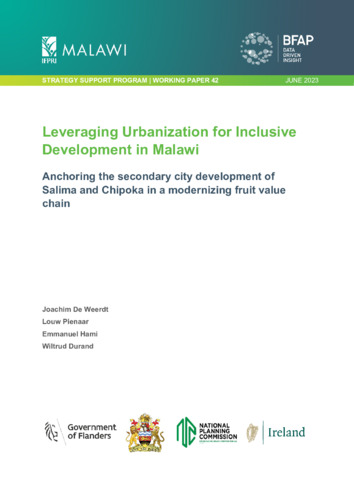Leveraging urbanization for inclusive development in Malawi: Anchoring the secondary city development of Salima and Chipoka in a modernizing fruit value chain
Abstract
Agricultural development in Malawi faces an important conundrum. While agriculture is the backbone of the economy, many smallholders will not be able to farm their way out of poverty. Shrinking farmland size severely limits the total income that can be earned from farming, even at much higher levels of productivity per area farmed than are now achieved. Urbanization embedded in the modernization of locally relevant value chains provides a promising pathway to inclusive development as it serves to simultaneously raise farm incomes, create income-earning opportunities off the farm, and create specialized urban hubs that can boost urban economic growth through agglomeration economies. After laying out these concepts conceptually, we apply them to a specific example of a modernizing mango value chain in Salima/Chipoka. Salima and Chipoka form an urban cluster about 100 km from the capital Lilongwe, located on the lakeshore of Lake Malawi. The Malawi Secondary Cities Plan has identified this cluster as one of eight that are to form an interconnected network of secondary cities, geographically spread across the country, with productive activities in each anchored in the economy of their rural hinterlands

